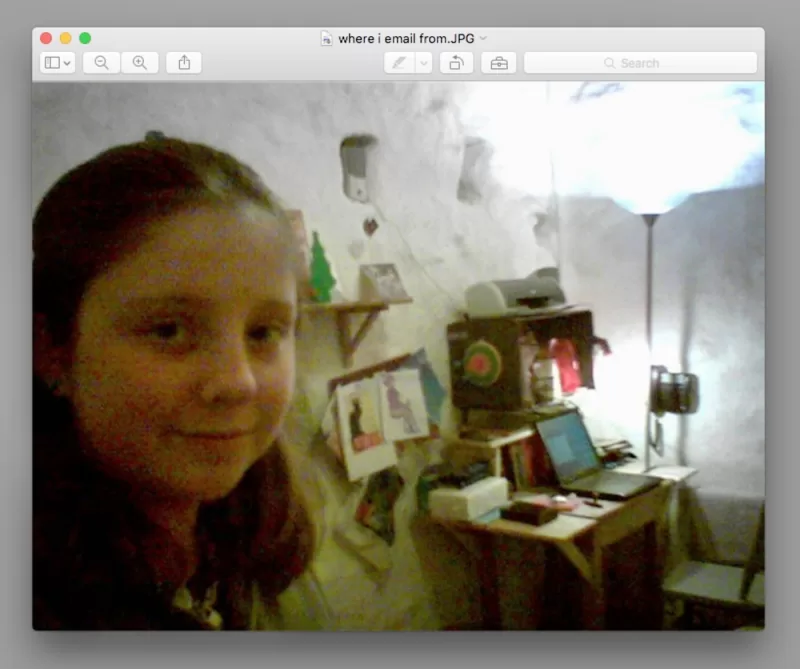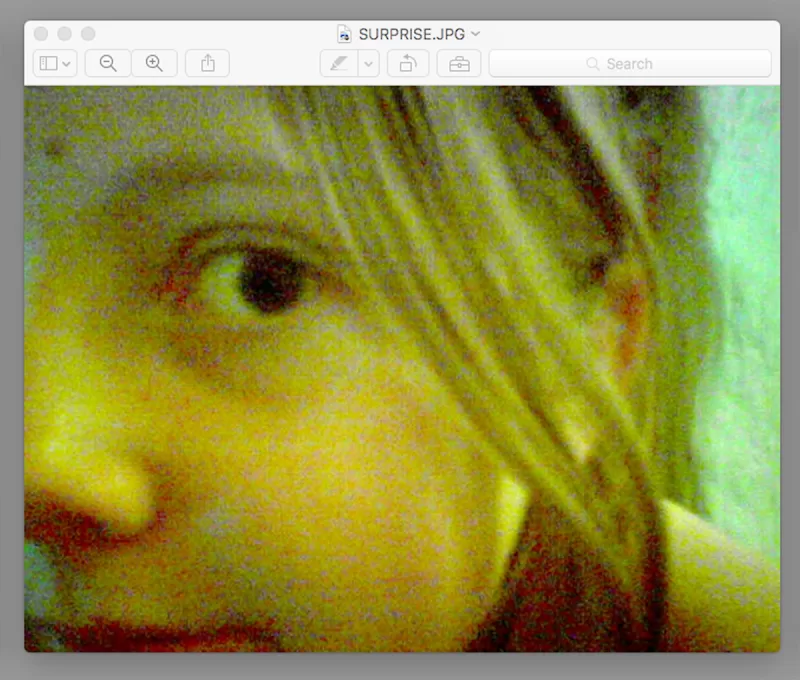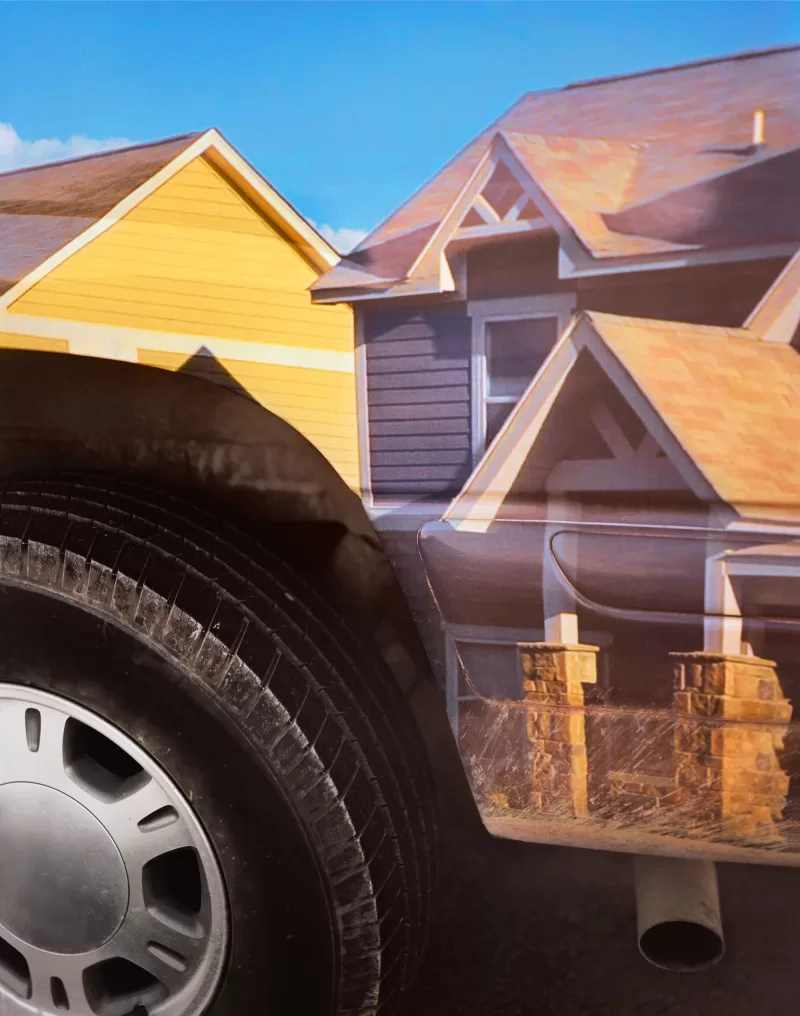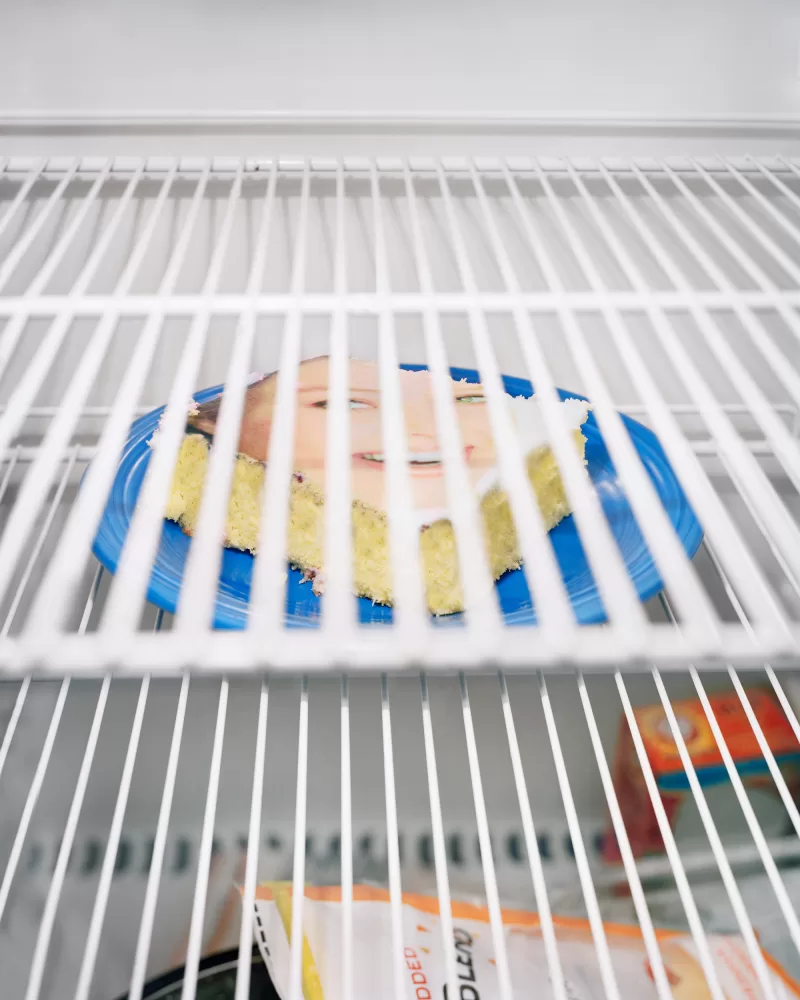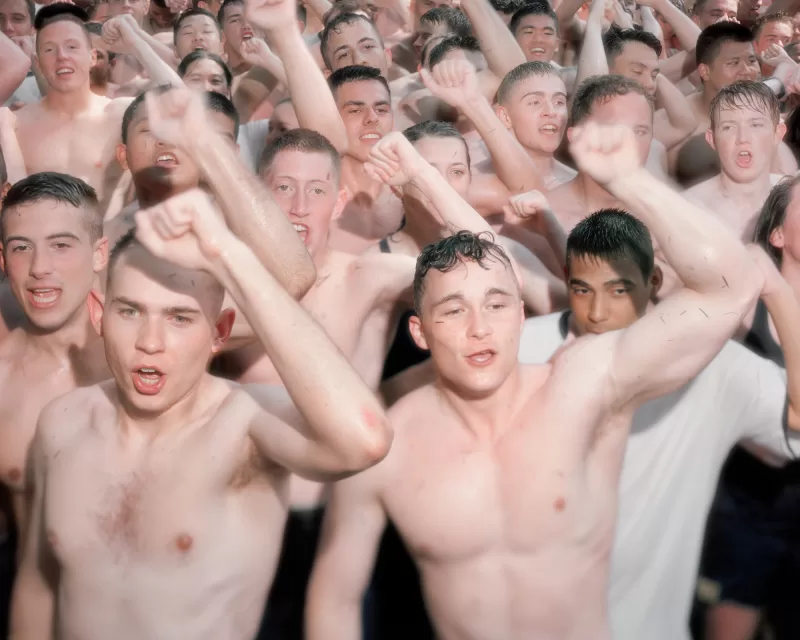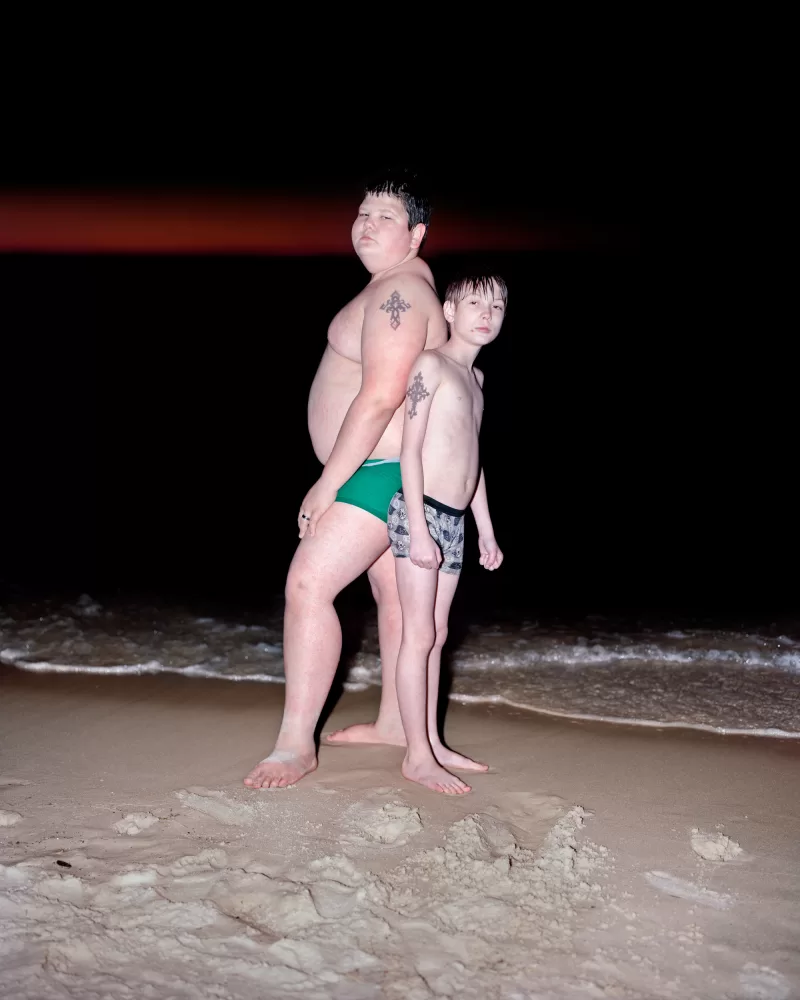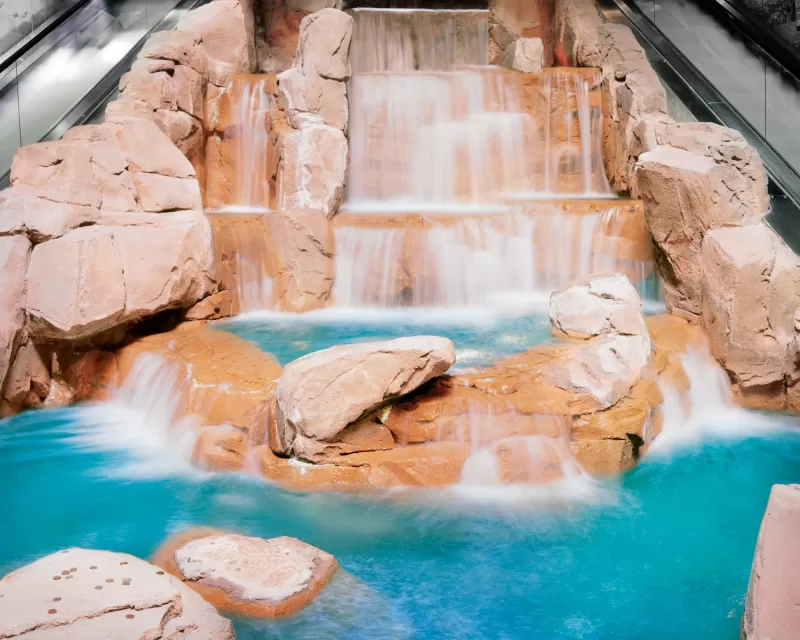Interview – Happy Valley by Eva O’Leary
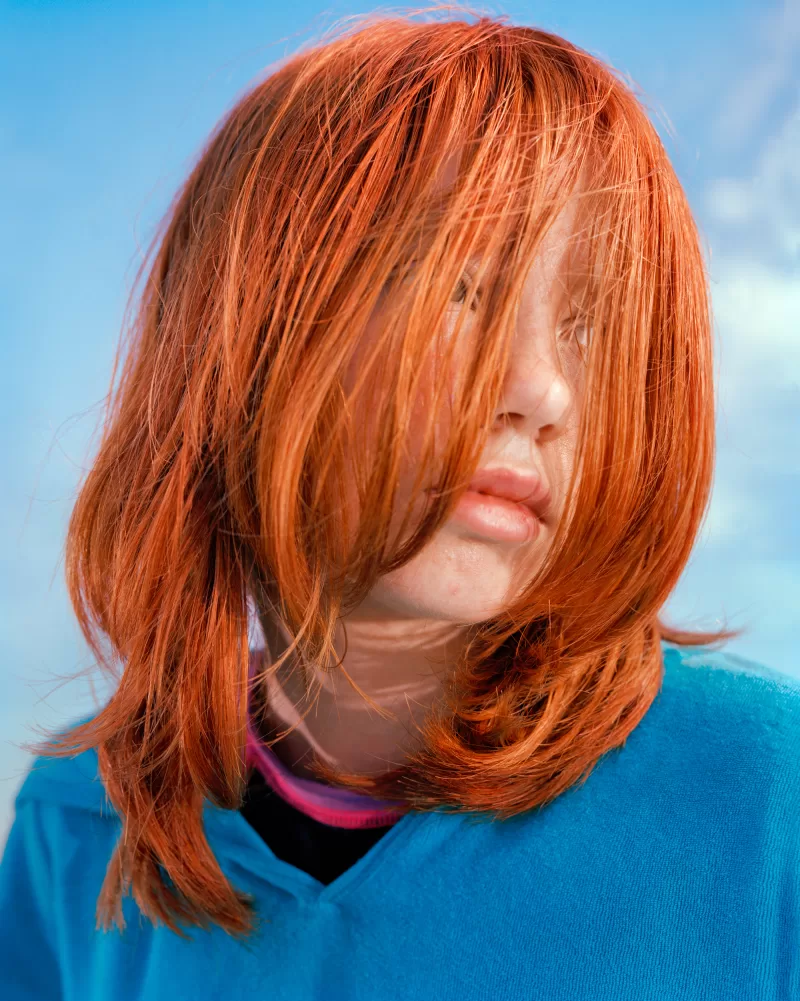
Eva O’ Leary is an American-Irish artist based in Brooklyn, New York. Her most recent project Happy Valley, titled after her hometown, is currently on view at Foam Amsterdam through April 28th. Through her practice, O’Leary re-elaborates her personal experience, and in particular her teenage years growing up in central Pennsylvania. By looking at her series Happy Valley, a few questions arise; What is normal? How free are we to divert from society’s prevailing models? Do we facilitate gender equality at an early age? What’s hidden beneath the surface?
O’Leary’s project is a personal quest to make sense of the male-dominated environment she grew up in, its expectations, and misleading messages. Her vibrant, yet uncomfortable images resonate with the particular times we are living in, and lead us to reflect on what it means to be, or, more importantly, to become women in this metaphorical “happy valley” we’re all immersed in.
Eva, how did you start working with photography?
Both my parents are painters, so I grew up with a lot of art around. In a way, art felt like my family’s religion. The way both my parents were engaging with it was really serious, it felt like a spiritual pursuit. When I was young, I always had a project I was working on, which wasn’t necessarily photography but just making something. When I was 13, in Ireland, I was given my first camera. It looked like a lighter, a Zippo lighter, you could open it and there was a camera. It was something like a .03 megapixel camera.
Do you still have it?
No, unfortunately, I lost it at some point. A few years ago my dad told me he’d found an old thumb drive with the contents of my 13-year-old laptop. I found pictures that I took with the camera that year and they are all selfies. The thing I found the most interesting was how I had gone in and re-named all the files in really strange ways. It was almost like I was using the pictures to try and understand how other people saw me.
It’s like owning an inventory of when you were 13 years old.
Yes. There’s one where I took a selfie with my laptop and it’s titled “Where I email from.” I love them. They’re all from my 13 years old brain.
Let’s talk about your project Happy Valley, currently on view at FOAM Amsterdam. How does it fit into your own history?
The work is titled after my hometown in central Pennsylvania, a lot of the images are based on memories or experiences or feelings I had growing up there. It isn’t a documentary project, many of the images aren’t even made in this town. But when I was making this work, I was reflecting a lot on the culture there, how it impacted me, how it shaped me. I was thinking a lot about fantasy, ideas of normalcy, the pressure to conform – and the side effects to this behaviour that can be toxic.
Happy Valley is actually your hometown. Can you tell us more about it?
Yes, it’s a college football town, and used to be one of the largest party schools in the country. There are aspects of the culture here that really impacted me as a young woman. The gender dynamics are really extreme. When I was around 14, I spent one year in Ireland. When I came back, most of my friends had started going out to parties and embracing the college party culture. The idea of what is feminine or masculine is super polarised and rigid. You grow up with these extreme role models, and it’s hard to see anything different or acknowledge the consequences of it all. I’ve been talking to childhood friends recently about the whole experience and it’s been interesting to hear them reflect on growing up in the same culture.
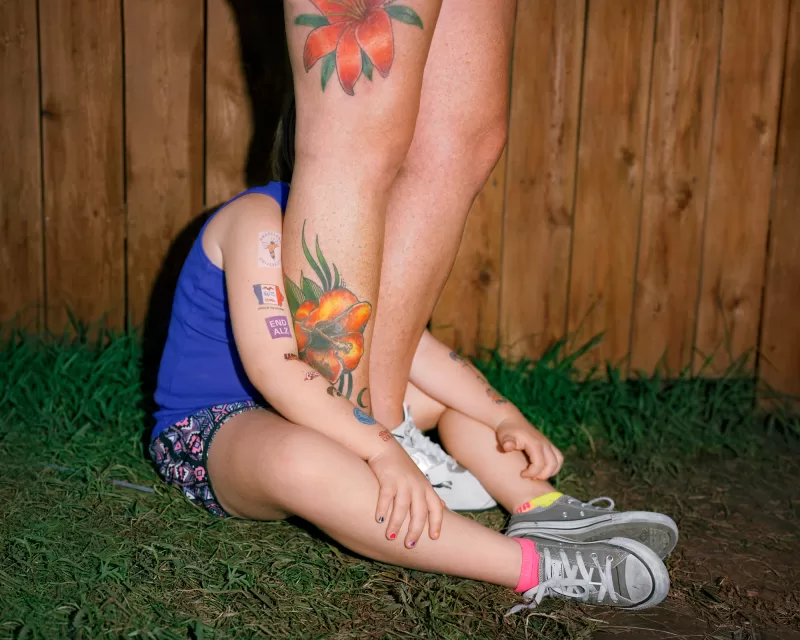
What about the men’s dynamics? Are you interested in that at all?
A lot of my work is self-motivated, it’s really me trying to look back at these experiences and make sense of them. Or look at certain aspects of my behaviour now (like insecurities or fears), and try to understand where they came from. I think that’s why I make more pictures of women.
How do you think people in your town are reacting to the project?
That’s something I’m still trying to figure out. It’s important to acknowledge that the work is, and, isn’t about the town; many of the themes in the work exist on a much larger scale. This is me working from my own personal experiences, examining my memories and trying to figure things out. It isn’t a documentary project. The pictures are not all made in my hometown, it’s really a metaphor. I’m thinking a lot about what it means to have been shaped by a certain type of culture or fantasy. Making pictures helps me understand how I have been taught to react to the world, or how I experience it, sometimes in negative or fearful ways.
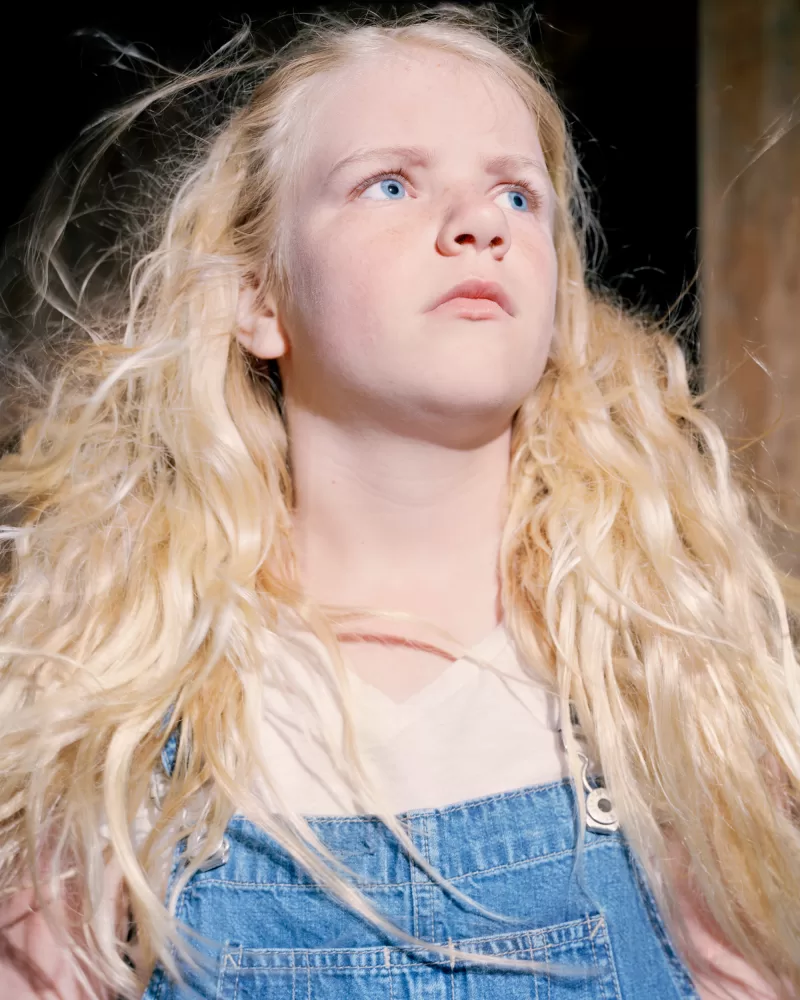
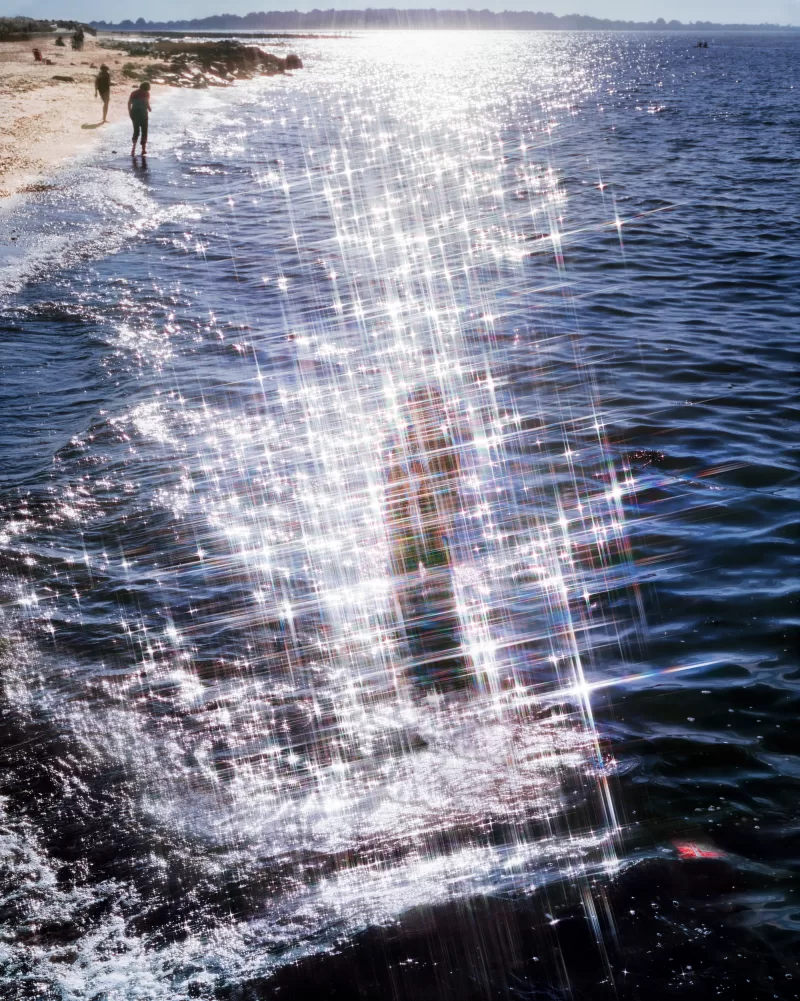
Is there any major influence in photography that inspired you at the beginning?
I think the very first time I had a spiritual experience looking at art was with Rineke Dykstra’s The Buzz Club video which is still one of my favourite pieces.
I saw it at one of her retrospectives when I was in college. It was at a museum, very institutional, somehow intimidating. You walk into the video room and everyone is standing still because they’re all looking at *a serious work of art.* Since she was filming in a nightclub, the sound track feels like you’re inside a club. I remember looking around, the music was loud and it made you want to move, you became really aware of your body. You observe the figures that she was working with, young people, really vulnerable, dancing, taken over by the music as if they’re in a trance.
I loved the idea of taking an experience from pop culture and putting it into an art space. It was something that I really could relate to.
Something that you could transform or it could explode into something else…
Yes, along with the notion that anything could be valid, anything could be investigated.
The idea that you could take something that might be considered frivolous, like pop music, and incorporate it into something really powerful; it was revelatory and it stayed with me.
Could you tell me what you’re working on right now?
I’ve spent the last two years travelling back and forth between my hometown and New York. I’ve been working with a group of young women there. It’s another project that has made me reflect a lot on a certain age, in many ways, it’s been one of the more challenging projects I’ve worked on. But it still feels really private and personal, I don’t really want to talk about it in detail quite yet.
Happy Valley is on view through 28 April 2019 at Foam 3h

